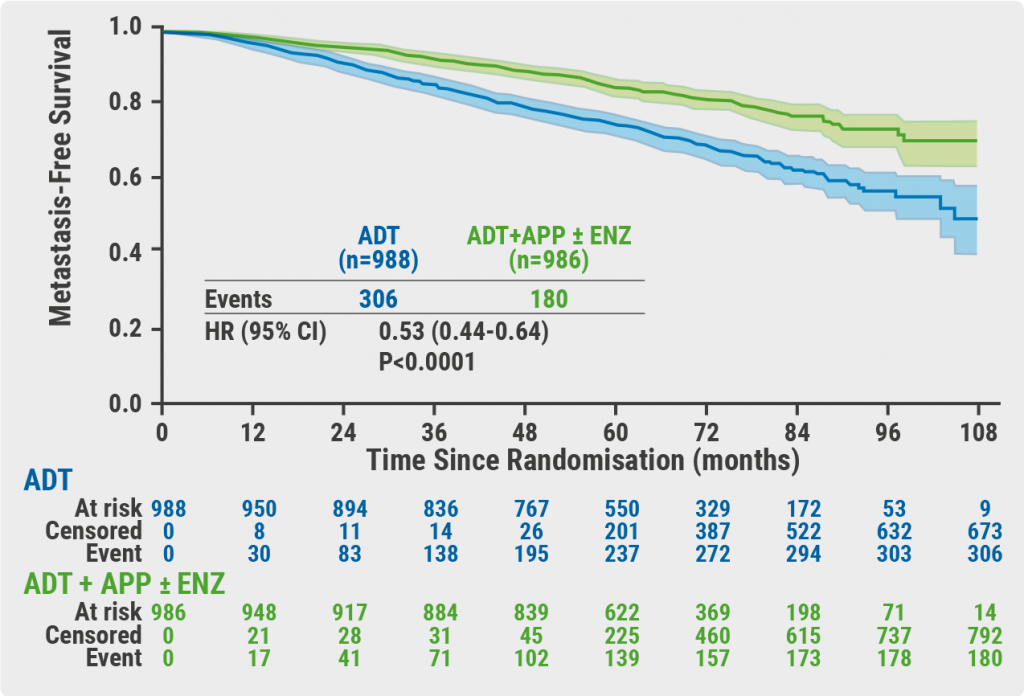"To our knowledge, ARIEL4 is the first study to compare a PARP inhibitor with standard-of-care platinum and non-platinum-based chemotherapy in patients with germline or somatic BRCA1 or BRCA2 mutations and relapsed ovarian carcinoma," researchers report in The Lancet Oncology.
"Our patient population is also distinct from that of previous studies because it included patients with platinum-resistant, partially platinum-sensitive, and fully platinum-sensitive disease. In this broad population, rucaparib significantly improved progression-free survival versus chemotherapy," they add.
The open-label study enrolled 349 patients with relapsed, high-grade epithelial ovarian, fallopian tube, or primary peritoneal cancer, with 233 randomly allocated to rucaparib (600 mg twice daily) and 116 to chemotherapy (administered per institutional guidelines).
Weekly paclitaxel was given to patients who were platinum resistant or partially sensitive and platinum-based chemotherapy monotherapy or doublet regimen was given to those who were fully sensitive to platinum.
Seventy-four patients in the chemotherapy group (64%) who had disease progression crossed over to the rucaparib group.
In the efficacy population (220 on rucaparib and 105 on chemotherapy), median progression-free survival (PFS) was significantly longer with rucaparib than chemotherapy (7.4 vs. 5.7 months; hazard ratio: 0.64; 95% CI, 0.49 to 0.84).
Median PFS was the same in the intention-to-treat (ITT) population of 233 on rucaparib and 116 on chemotherapy (7.4 vs. 5.7 months), with a hazard ratio of 0.67 (95% CI, 0.52 to 0.86).
"Prespecified and post-hoc subgroup analyses showed that rucaparib generally had a consistent progression-free survival benefit compared with chemotherapy across most clinical subgroups analyzed," the researchers report.
Most treatment-emergent adverse events (TEAEs) were grade 1 or 2. The most common grade-3-or-worse TEAEs were anemia or decreased hemoglobin.
Serious adverse events considered related to treatment occurred in 32 (14%) patients in the rucaparib group and six (5%) in the chemotherapy group.
Three deaths were considered to be potentially related to rucaparib (one due to cardiac disorder, one due to myelodysplastic syndrome, and one with an unconfirmed cause).
The author of an editorial published with the study says the ARIEL4 data show that rucaparib is "active and a reasonable alternative to chemotherapy for women with advanced, pretreated, BRCA1/2-mutated ovarian cancer."
"As always, optimizing first-line therapy trumps all other efforts," writes Dr. Dearbhaile O'Donnell with St. James's Hospital, Dublin, Ireland.
"That means a major global challenge: to provide women with high-grade serous or high-grade endometrioid ovarian cancer with access not only to appropriate surgical expertise and platinum chemotherapy, but also to BRCA1/2 and homologous recombination deficiency (HRD) testing at diagnosis and to early post-chemotherapy PARP inhibitor therapy if they are expected to benefit from it," Dr. O'Donnell adds.
The ARIEL4 study was funded by Clovis Oncology. Several authors have financial relationships with the company.
SOURCE: https://bit.ly/3tr8p4H and https://bit.ly/3qldqtt The Lancet Oncology, online March 14, 2022.
By Reuters Staff
Posted on
Previous Article
« Arthritis drug beats placebo for treating severe alopecia areata Next Article
Risk of neurotoxic effects of prenatal antipsychotic exposure appears low, but questions linger »
« Arthritis drug beats placebo for treating severe alopecia areata Next Article
Risk of neurotoxic effects of prenatal antipsychotic exposure appears low, but questions linger »
Related Articles
November 26, 2019
Combination of PARP inhibition plus chemotherapy in ovarian cancer

August 31, 2021
Best of EAU: Updates on imaging and treatment of prostate cancer
© 2024 Medicom Medical Publishers. All rights reserved. Terms and Conditions | Privacy Policy

